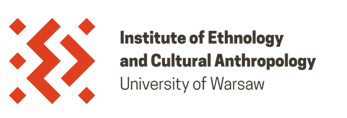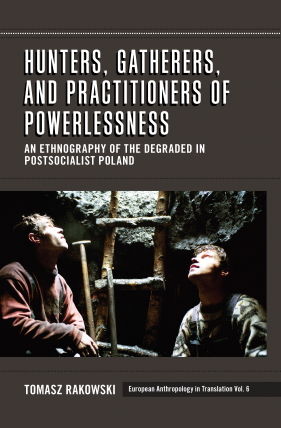Hunters, Gatherers, and Practitioners of Powerlessness. An Ethnography of the Degraded in Postsocialist Poland
“This is an important book that is both theoretically insightful and ethnographically rich. It provides a look into the “other side” of the postcommunist, neoliberal transformation in Poland, focusing on those who experienced social degradation—they lost social status as the country has gained position in the global economy.” · Marysia Galbraith, University of Alabama
“Rakowski is consistent in following his outlined path, trying to return the culture of poverty its human, inner face. Hermeneutical evidence, backed by extraordinary field work experience and thick description, give desired results. Polish ethnological tradition combined with inspirations drawn from world-class anthropologists, the achievements of Polish researchers of poverty and the classics of sociology and philosophy, result in a work of unquestionable research and intellectual value. A real breakthrough in studies on marginalised people, victims of progress.” · Michał Buchowski, Adam Mickiewicz University in Poznań, European University Viadrina
“In his book Rakowski studies the most tragic dimension of the postcommunist condition, by immersing himself in the lives of those who experienced the total, if temporary, collapse of the economic and social foundations of their existence. He produces three nuanced ethnographies of social and economic resilience in the face of not just an economic collapse but also a cultural catastrophe. [...]Rakowski, an heir to the tradition of Bronisław Malinowski and Florian Znaniecki, takes it to a new level, enriching it not only with the results of his own trail-blazing ethnographic work, but also with novel interpretive threads, taken for example from Marleau-Ponty’s phenomenology. It is hard to find a better ethnographic example of the work that is 'ontological' in its spirit.” From the foreword, Jan Kubik, University College London, School of Slavonic and East European Studies
The socio-economic transformations of the 1990s have forced many people in Poland into impoverishment. Hunters, Gatherers, and Practitioners of Powerlessness gives a dramatic account of life after this degradation, tracking the experiences of unemployed miners, scrap collectors, and poverty-stricken village residents. Contrary to the images of passivity, resignation, and helplessness that have become powerful tropes in Polish journalism and academic writing, Tomasz Rakowski traces the ways in which people actively reconfigure their lives. As it turns out, the initial sense of degradation and helplessness often gives way to images of resourcefulness that reveal unusual hunting-and-gathering skills.



